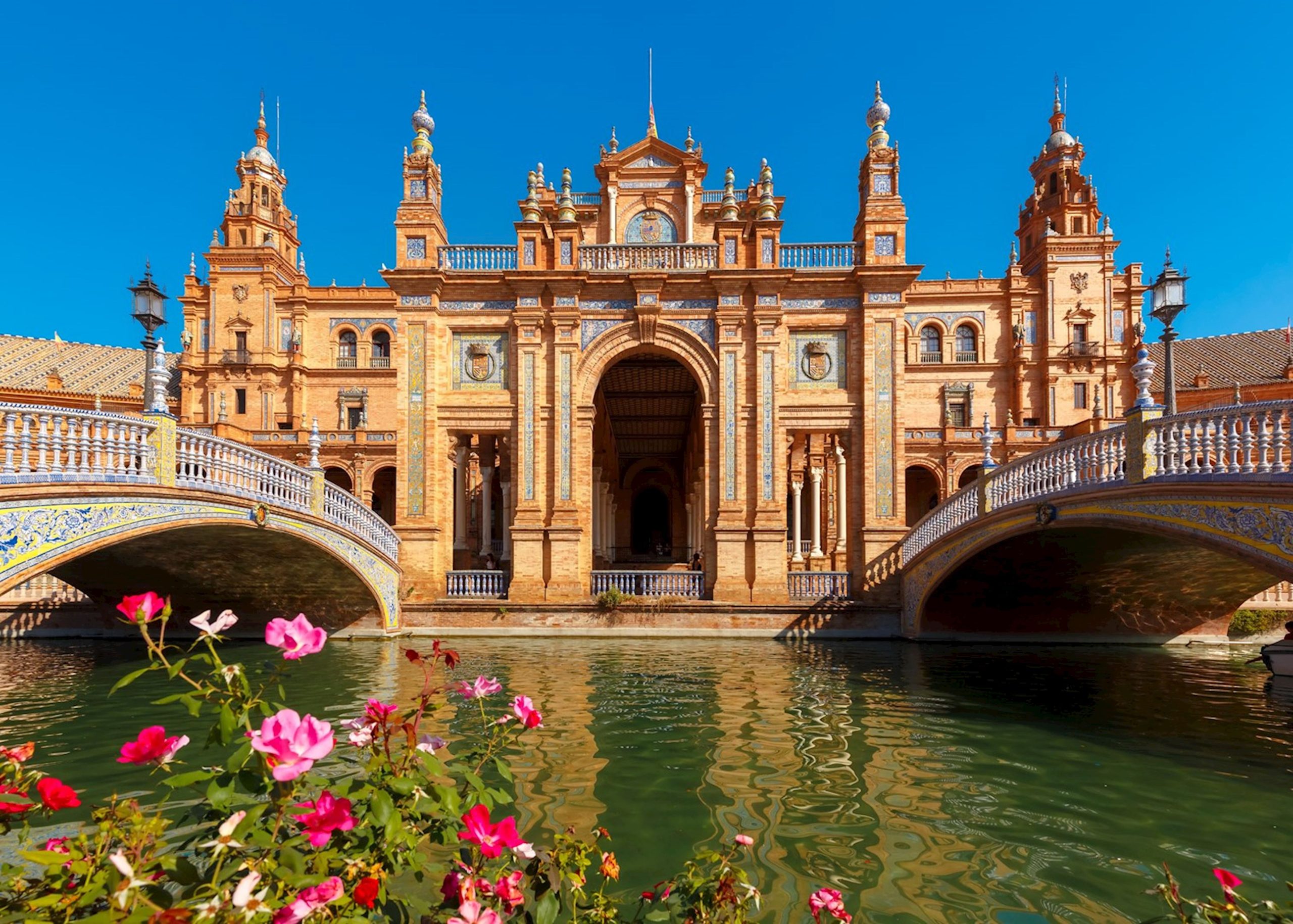Culture Shock in Spain: Navigating the Tapas, Time, and Traditions
Spain, a land of sun-drenched beaches, vibrant cities, and passionate people, is a popular destination for tourists, students, and expats alike. While the allure of paella, flamenco, and siestas is undeniable, many newcomers experience culture shock as they navigate the nuances of Spanish life. Beyond the picture-postcard images, a deeper dive into the Spanish way of life reveals cultural differences that can be both charming and challenging. Understanding these potential shock points and developing strategies to cope can significantly ease the transition and allow you to fully embrace the richness of Spanish culture.
The Pace of Life: Embracing "Mañana"
One of the most common adjustments for those arriving from more fast-paced cultures is the relaxed attitude toward time in Spain. The concept of "mañana" (tomorrow) often stretches beyond its literal meaning, signifying a more fluid approach to deadlines and schedules. This can be frustrating for individuals accustomed to punctuality and efficiency. Business meetings might start late, shops may close unexpectedly, and service can feel leisurely.
This slower pace stems from a different set of priorities. In Spain, personal relationships and enjoying the present moment often take precedence over strict adherence to schedules. Socializing with friends and family is highly valued, and rushing through these interactions is considered impolite.
Coping Strategy: Embrace the "mañana" mentality. Resist the urge to constantly push for efficiency. Instead, learn to appreciate the opportunity to slow down, connect with others, and savor the moment. Factor in extra time for tasks and appointments, and try to view delays as an opportunity to relax and observe your surroundings. Developing patience is key to navigating the Spanish tempo.
Social Interactions: Kissing, Conversations, and Volume
Spanish social interactions are generally warm, affectionate, and expressive. Greetings often involve two kisses on the cheeks (one on each side), even between acquaintances. Personal space can feel smaller than in some cultures, and physical contact is common during conversations. Conversations tend to be lively and animated, often conducted at a higher volume than what might be considered polite in other countries. Interruptions are frequent and generally not seen as rude.
Furthermore, Spanish culture places a strong emphasis on directness. While not intending to be offensive, Spaniards may express opinions and observations with a level of candor that can be surprising to some.
Coping Strategy: Observe and learn the social cues. Pay attention to how Spaniards interact with each other and gradually adapt your own behavior accordingly. Be prepared for the cheek kisses and embrace the physical warmth. Don’t be afraid to participate in lively conversations, even if it feels a bit overwhelming at first. Try not to take directness personally; it’s usually not meant to be critical, but rather a sign of honesty and openness.
Food and Dining: More Than Just Tapas
Spanish cuisine is world-renowned, but the dining culture can present its own set of adjustments. Lunch is typically the largest meal of the day, eaten between 2:00 PM and 4:00 PM, while dinner is consumed much later, often around 9:00 PM or 10:00 PM. Restaurants may be closed during the mid-afternoon hours, and finding an early dinner can be challenging.
Tapas, small savory dishes, are a quintessential part of the Spanish experience. However, the concept of "tapas culture" can vary significantly from region to region. In some areas, tapas are offered free with drinks, while in others, they are ordered and paid for separately. Dining is often a social event, with groups sharing dishes and engaging in lively conversation.
Coping Strategy: Adjust your eating schedule to align with Spanish meal times. Be prepared for later dinners and embrace the opportunity to socialize over food. Explore the regional variations in tapas culture and don’t be afraid to try new dishes. Remember that dining is a leisurely experience, so relax, enjoy the company, and savor the flavors. Learn a few basic Spanish phrases related to ordering food and drinks.
Language Barriers: Beyond Basic Spanish
While many Spaniards, especially in tourist areas, speak some English, relying solely on English can limit your experience and hinder your ability to connect with the local culture. Even if you’ve studied Spanish, you may find it challenging to understand the rapid-fire conversations and regional accents. Furthermore, colloquial expressions and slang can be confusing for non-native speakers.
The language barrier can lead to feelings of isolation and frustration, especially when trying to navigate daily tasks like grocery shopping, using public transportation, or dealing with bureaucratic processes.
Coping Strategy: Invest time in learning Spanish. Even basic conversational skills can make a significant difference in your ability to interact with locals and navigate daily life. Take a language course, use language learning apps, or find a language exchange partner. Don’t be afraid to make mistakes; Spaniards are generally appreciative of the effort to speak their language. Carry a phrasebook or use a translation app to help with communication. Immerse yourself in the language by watching Spanish movies and TV shows, listening to Spanish music, and reading Spanish books.
Bureaucracy and Red Tape: Patience is a Virtue
Navigating Spanish bureaucracy can be a frustrating experience. Dealing with government offices, banks, and other institutions often involves lengthy waits, complicated paperwork, and a general lack of efficiency. Processes that might be straightforward in other countries can become surprisingly complex in Spain.
Coping Strategy: Arm yourself with patience and persistence. Be prepared for delays and setbacks. Do your research beforehand and gather all the necessary documents. Consider seeking assistance from a gestor (administrative agent) who can help you navigate the bureaucratic process. Try to maintain a sense of humor and remember that you’re not alone in your struggles.
Regional Differences: Spain is Not a Monolith
Spain is a country of diverse regions, each with its own distinct culture, language, and traditions. What might be considered acceptable in one region could be offensive in another. For example, the Catalan region has a strong sense of identity and its own language, Catalan, which is widely spoken alongside Spanish. Similarly, the Basque Country has its own unique culture and language, Euskara.
Coping Strategy: Be aware of the regional differences and do your research before traveling to different parts of Spain. Learn a few basic phrases in the local language, if applicable. Be respectful of local customs and traditions. Avoid making generalizations about Spain as a whole, as each region has its own unique character.
Homesickness and Isolation: Building a Support System
Experiencing culture shock can lead to feelings of homesickness, isolation, and loneliness. Missing familiar foods, customs, and social connections is a natural part of the adjustment process.
Coping Strategy: Build a support system. Connect with other expats or international students who understand what you’re going through. Join social groups or clubs that align with your interests. Stay in touch with friends and family back home, but also make an effort to build new relationships in Spain. Explore your new surroundings and find activities that you enjoy. Take care of your physical and mental health by exercising, eating well, and getting enough sleep.
Embracing the Experience: The Rewards of Adaptation
While culture shock can be challenging, it’s also an opportunity for personal growth and cultural enrichment. By understanding the potential shock points and developing strategies to cope, you can navigate the transition more smoothly and fully embrace the richness of Spanish culture. The rewards of adapting to Spanish life are immense, from forming lasting friendships and discovering new passions to gaining a broader perspective on the world. So, embrace the "mañana" mentality, learn to love the cheek kisses, and prepare to be captivated by the vibrant tapestry of Spanish life. The journey may have its bumps, but the destination is well worth the effort.


